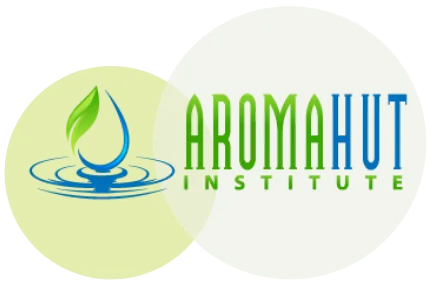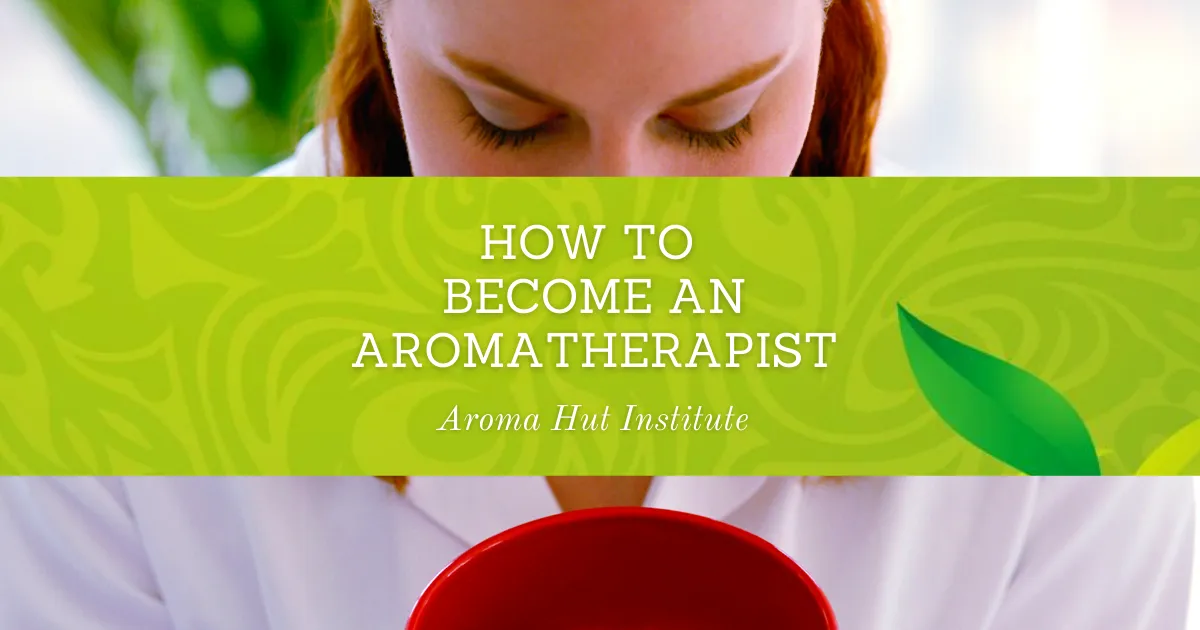We live in a world now where medical technology is moving as fast as all technology. We’re growing ears on mice and have cured liver disease. And they’ve discovered that essential oils often work where antibiotics won’t cure major bacterial, viral, and fungal infections. In fact, they are finding out, in all kinds of areas of medicine, that the old ways really are the best way. After all, Hippocrates advocated the use of essential oils for wounds in 400 B.C. and it’s taken this long for scientists to recognize that, well, yes, he was right. They have even discovered that one essential oil repels one of the ZIKA mosquitoes with 100% effectiveness. The world is set to explode in essential oil education, production, and consumption, with both businesses and consumers wanting to purchase these vital elixirs.
Consequently, we are going to need lots of certified aromatherapists: nurses who also serve as aromatherapists, and licensed massage therapists and masseuses who can use essential oils in their work as well. And they are going to stay quite busy with their clients. With such a need, clients will pay well for your knowledge.
 Licensing Requirements
Licensing Requirements
No true, authentic, national certification or licensing requirement is established for aromatherapy. However, essential oils are starting to be recognized by surgeons and medical doctors from all health arenas, and they soon will be. Believe it.
Until then, we have something that works just as well. Aromatherapists have created their own means of recognizing strong education by the NAHA's standards for the educational requirement for certification, which is the Natural Therapies Certification Board. Plus, you can also join the non-profit National Association for Holistic Aromatherapy. The NAHA recognizes Aroma Hut institute as an approved educator for your certification—and NAHA is highly respected as an association to join as well. Both carry all the clout you need to get a real job as an aromatherapist. For more on this, see www.naha.org.
Here are the steps to becoming a Certified Aromatherapist:
1. Select a Quality Aromatherapy School
Most good aromatherapy schools offer a blend of both online, self-paced, and in-person instruction, so you can gain hands-on experience in the presence of a true professional who can answer your questions and instruct you by example. In addition, a good aromatherapy school has to be approved as a NAHA Approved Educator Provider, which leads me to my next step.
2. Make sure the Aromatherapy School is approved by NAHA for Certification
The National Association for Holistic Aromatherapy has a list of top schools which meet their high standards for truly educating an individual to meet the needs of aromatherapy clients today. Aroma Hut Institute is one of their top schools for aromatherapy education. What is good about their list is that any school that gains its seal of approval has to prove its courses meet its high level of standards.
3. Make Sure The Website Provides Reliable Information
So noted – that there is lots of information available on the internet with all kinds of advice on essential oil usage, but whether this information is based on science or some Neptunian haze is up for grabs. If you can count on about 50% of what you read on the internet to be fact, then the other 50% is … less than that. Even if there is a shred of truth to what you find, unless it comes from a reliable source, there are bound to be some errors, omissions, or blurring of reality. So how do you tell the difference? Moreover, where does that leave the person who is keen to try essential oils for the first time?
One major problem seems to be that many people don’t realize that essential oils can be quite dangerous if not used properly. If ingested or used full-strength topically, they could potentially cause serious harm. As many uninitiated tend to think essential oils are part and parcel of a hippie/‘new age-y’ alt-medicine cult, certified aromatherapy practitioners have been thrust into the center of a quandary.
4. Is It A Legitimate Aromatherapy School or a Network Marketing Company?
There is ongoing controversy over several critical issues – ingestion, dilution, and the British vs. French methods of practice being the core topics – but much discussion can be heard surrounding ‘free education’ vs. certification also. The current lack of any legal standard of training for an aromatherapy school is fueling the fire.
With little to no official regulation keeping aromatherapy treatments consistent from practitioner to practitioner, those seeking treatment from an uncertified aromatherapist may well be taking a dangerous gamble with their health. In addition, there are literally hundreds – if not thousands – of MLM (aka ‘Network Marketing’) companies currently selling essential oils throughout the world, and you’ll be hard-pressed to find one of their ranks that are truly qualified in their use. Lacking an educated understanding of the chemistry behind the oils, the different methods of extraction, the plant sources, and the science behind their use for the treatment of any number of issues, a person could potentially be a target for serious bodily injury.
Buyer Beware: Aromatherapy programs like Dr. Axe and Doterra are not NAHA-approved schools.
On the one hand, it is a great thing that these companies have opened the eyes of the masses to the benefits of essential oils. On the other hand, their administration could do more harm than good without the appropriate directions and cautions. The only perfect answer to this dilemma is to create some sort of globalized standard of safety and use, which should include certification for its practitioners.
Think of it this way: if you’re handy, you can probably do a little electrical work around your home. But you’re not a professional. Who’s to blame if you get a wire crossed and burn your house down? You watched the YouTube video and read about it on the internet, so you figured you were good to go. Now you’re homeless, and your insurance company isn’t sympathetic. They tell you that you “should have called an electrician.” And they are absolutely right.
It’s true; you can read all about aromatherapy on the internet. Different oils, grades, sources, what they are good for, and how to use them. It’s out there, and most of it is reasonably accurate. The difference is that the internet can only generalize about your individual health, and so what might be recommended for some complaints may not work for you for various reasons. The problem is that there seems to be a widespread notion that because all this information is out there for free, then why should the practitioner need to be paid for the same thing at an aromatherapy school? Shouldn’t they be getting with the program and plying their wares, education, and experience for free?
Social media is a huge factor in driving this trend. Even health care professionals who want to use essential oils in their practice are left with more questions than answers. Safety is critical when prescribing any sort of treatment in a clinical setting, and widespread and generalized information reaches social media denizens that can be alarmist at times and appear to tout unsafe usage at others. It would be easy to say “consider the source” and try to direct people to find out whether an article is aimed at stimulating sales or if it comes from a qualified resource such as an aromatherapy school – but again, where is the standard? If the individual or company does not have a certification to stand behind, perhaps we should be questioning the motive.
5. Review the School's Curriculum.
One methodology students can use to evaluate how well a school will prepare them for a career as a professional aromatherapist is for them to compare the school’s required coursework to the coursework required for approval by the NAHA and AIA. Aroma Hut Institute is an approved school by NAHA with a curriculum that exceeds its standards.
6. Verify that Your Aromatherapy Course Will Entitle You to the Use of Professional Titles.
Due to the surge of multi-level essential oil companies worldwide, the improper use of job titles in the essential oil industry can confuse and mislead the public. Knowing the difference and what your education entitles you to use is important. As a graduate of our Level 1 program, you may refer to yourself as an “Aromatherapist.” As a graduate of our Level 2 program, you may call yourself a “Certified Aromatherapist.”
7. Confirm the Program Meets the Qualifications for Membership to Professional Organizations.
As a graduate of the Aroma Hut Institute’s Aromatherapy Certification Program, students qualify to join NAHA or AIA as professional members. In addition, graduates will be eligible to receive liability insurance for their practice. Students enrolled in the aromatherapy program at Aroma Hut Institute may join NAHA and AIA as Certified Professional Aromatherapists.
8. Validate the School’s Program offers Career Options Upon Completion of Your Aromatherapy Education.
A prospective student should also consider an aromatherapy school that provides the kind of aromatherapy education that will thoroughly equip the graduate to be able to provide the highest-quality and safest aromatherapy services possible to the public. Aroma Hut Institute’s certification program incorporates a personally-tailored curriculum that will best prepare a student to further their educational and professional advancement as a Certified Aromatherapist.
Upon completion of Aroma Hut Institute’s aromatherapy certification program, a graduate may choose to continue with the Teacher Training program that provides “private label” courses for a graduate to use as fit for teaching aromatherapy classes or start an Aroma Hut Institute franchise.
9. Confirm Continuing Education Units (CEUs) are available for Massage Therapists.
Since massage therapy and aromatherapy are modalities that work well together, Aroma Hut Institute offers continuing education units (CEUs) as an approved continuing education provider through the (NCBTMB) National Certification Board for Therapeutic Massage & Bodywork. By providing high-quality continuing education courses that will enhance a practitioner’s career, Aroma Hut is committed to making sure the student has the most current and reliable research available. The breakdown for courses offering CEUs is as follows:
30 CEUs for Foundations In-Person Class
50 CEUs for Level 1 (100 hours) Online Course
100 CEUs for Level 2 (200 hours) Online Course
24 CEUs for Body Systems (24 hours) In-Person Class


